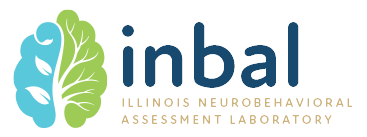Psychological testing services are primarily used for diagnostic clarification. These services require an initial consultation with a psychologist and additional in-person sessions. Clients and/or caregivers also participate in feedback sessions to review results and recommendations with the psychologist and receive a written report.
Attention and Executive Functioning
Areas of function assessed
Verbal and nonverbal intellectual functioning, visual and auditory attention, executive functioning, working memory, processing speed, and emotional functioning
Methods
Initial consultation with psychologist, 2-3 in-person testing appointments during the morning hours, completion of behavioral rating forms by informants
Primary purpose
Administered to determine whether an individual meets criteria for a diagnosis of attention-deficit/hyperactivity disorder (ADHD)
Learning
Areas of function assessed
Verbal and nonverbal intellectual functioning, visual and auditory attention, executive functioning, working memory, processing speed, emotional functioning, academic achievement (reading, writing, and mathematics), visual-motor integration, fine motor coordination, memory, and possibly visual and/or auditory processing
Methods
Initial consultation with psychologist, 4-6 in-person testing appointments primarily during the morning hours, completion of behavioral rating forms by informants
Primary purpose
Administered to determine whether an individual meets criteria for a diagnosis of a learning disability such as dyslexia (reading), dysgraphia (writing), and/or dyscalculia (math) and/or a variety of other conditions such as ADHD, nonverbal learning disabilities, weaknesses in executive functioning, and other areas of processing that interfere with learning
Social-Cognition
Areas of function assessed
Includes areas of functioning listed in the Attention and Executive Functioning testing description, and may include those listed in the Learning testing description in addition to social cognition and behavior, social communication, sensory processing, and adaptive living skills
Methods
Initial consultation with psychologist, 4-6 in-person testing sessions primarily during the morning hours (shorter, more frequent appointments may be needed depending on an individual’s level of functioning and developmental stage), completion of behavioral rating forms by informants. May also include an additional in-depth interview with caregivers.
Primary purpose
Administered to determine whether an individual meets criteria for an autism spectrum disorder, and/or other neurodevelopmental disorders (intellectual disability, social-pragmatic communication disorder, etc.)
Comprehensive
Areas of function assessed
May include any and/or all of the areas of functioning listed in the Attention and Executive Functioning, Learning, and Social-Cognition testing descriptions in addition to in-depth assessment of emotional functioning, behavior, and/or personality
Methods
Initial consultation with psychologist, 5-7 in-person testing sessions primarily during the morning hours, completion of behavioral rating forms by informants. May also include an additional in-depth interview with caregivers.
Primary purpose
Administered to provide diagnostic clarification when there are multiple diagnostic considerations. Clients may wish to pursue comprehensive testing to obtain as much information as possible about current level of functioning independent of whether there is a significant clinical concern in each area of functioning.
